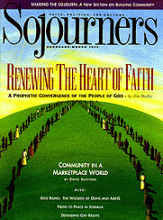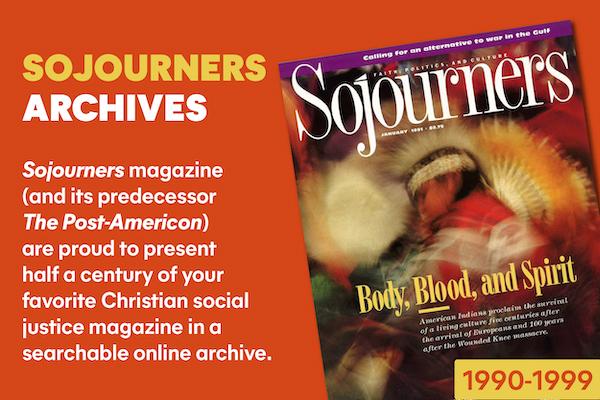It was the middle of the afternoon on March 7, 1992. Jim Wallis and Ken Medema were on the stage of the Palace Theater in Canton, Ohio, going over last minute details in preparation for the Let Justice Roll event to be held that evening. The theater was empty, except for the fear that our efforts to move our community to a deeper concern for justice and peace would fail.
What brought us to that night--and what that night promised for our future--is a story worth telling, because it can happen in your community.
My wife, Susan, and I are the parents of seven children, including two adopted children; and the foster parents of a toddler and a teen-age mother and her baby. Needless to say, our home life is busy, and occasionally we need to get away for a weekend to mend our spirits.
On one of these mini-retreats, Susan brought along an issue of Sojourners with the simple words "War Is Not the Answer" framed on the cover. From our point of view, blind patriotism was choking the needed dialogue on the United States' involvement in the Persian Gulf war. Our country's political leaders had already decided that war was the answer.
I was aware of a growing inconsistency between trying to raise my children in a nonviolent home environment and my lack of response to the violence in which our nation was engaging. I needed to act because I believe that children learn how to resolve conflict not by what we say as parents and adults, but by what we do.
The answer to what I might do came as I paged through Sojourners. An advertisement for the Let Justice Roll tour talked about a grassroots struggle for justice and peace in our land. When I read the word "grassroots," I knew that was me; I could make a difference in my community. But I couldn't do it alone.
Read the Full Article

